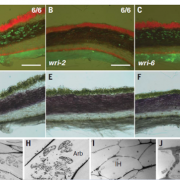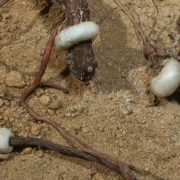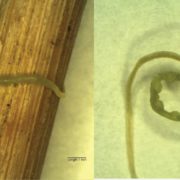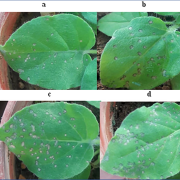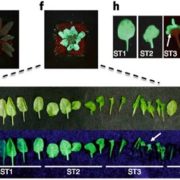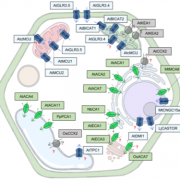High humidity compromises plant immunity while promoting pathogen growth (Plant Cell Environ)
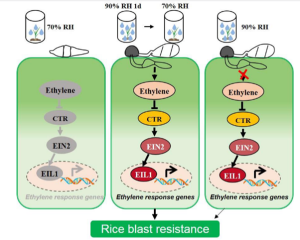 Humidity is considered a key component for the growth of fungal plant pathogens. For many infection assays we either maintain plants in high humidity, or wrap the infected area and keep spraying it with water. This is generally performed to facilitate fungal growth and the assumption that this may not have any effect on plant immunity. However, a recent publication by Qiu et al. indicates that high humidity does affect plant immunity. Qiu et al. performed rice infection assays at moderate (70%) and high (90%) moisture conditions. The authors observed higher humidity leads to faster conidial germination and appressoria formation in Magnaporthe oryzae (rice blast fungus) leading to more severe blast infection in rice. But authors also observed that at higher humidity levels, plants show less severe immune responses when treated with elicitors of immunity or with M. oryzae. Transcriptome analysis indicated reduced expression of ethylene response-related genes at high humidity. Using ethylene signaling mutants and exogenous application of ethylene signaling inhibitors or ethylene analogues, the authors concluded that the reduced defense response at elevated humidity is due to compromised ethylene signaling at high humidity. These findings help us understand why plants are more prone to infections during high rainfall. Additionally, this information may also help farmers strategize disease control strategies based on rainfall. (Summary by Kamal Kumar Malukani @KamalMalukani) Plant Cell Environ. 10.1111/pce.14452
Humidity is considered a key component for the growth of fungal plant pathogens. For many infection assays we either maintain plants in high humidity, or wrap the infected area and keep spraying it with water. This is generally performed to facilitate fungal growth and the assumption that this may not have any effect on plant immunity. However, a recent publication by Qiu et al. indicates that high humidity does affect plant immunity. Qiu et al. performed rice infection assays at moderate (70%) and high (90%) moisture conditions. The authors observed higher humidity leads to faster conidial germination and appressoria formation in Magnaporthe oryzae (rice blast fungus) leading to more severe blast infection in rice. But authors also observed that at higher humidity levels, plants show less severe immune responses when treated with elicitors of immunity or with M. oryzae. Transcriptome analysis indicated reduced expression of ethylene response-related genes at high humidity. Using ethylene signaling mutants and exogenous application of ethylene signaling inhibitors or ethylene analogues, the authors concluded that the reduced defense response at elevated humidity is due to compromised ethylene signaling at high humidity. These findings help us understand why plants are more prone to infections during high rainfall. Additionally, this information may also help farmers strategize disease control strategies based on rainfall. (Summary by Kamal Kumar Malukani @KamalMalukani) Plant Cell Environ. 10.1111/pce.14452


